« Return to all search results
Title Search Results
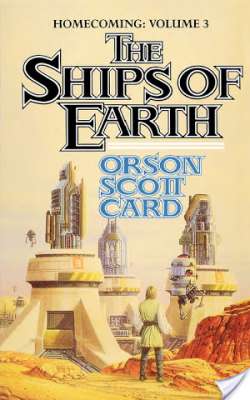
The City of Basilica has fallen. Now Wetchik, Nafai, and all their family must brave the desert wastes, and cross the wide continents to where Harmony's hidden spaceport lies silent, abandoned, waiting for the command to make the great interstellar ships ready for flight again. But of these sixteen people, only a few have chosen their exile. The others, Rasa's spiteful daughters and their husbands; Wetchik's oldest son, Elemak, have been forced against their will. Their anger and hatreds will make the difficult journey harder. Homecoming series The Memory of Earth The Call of Earth The Ships of Earth Earthfall Earthborn At the Publisher's request, this title is being sold without Digital Rights Management Software (DRM) applied.

THE AUTHOR OF SMALL ISLAND TELLS THE STORY OF THE LAST TURBULENT YEARS OF SLAVERY AND THE EARLY YEARS OF FREEDOM IN NINETEENTH-CENTURY JAMAICA Small Island introduced Andrea Levy to America and was acclaimed as "a triumph" (San Francisco Chronicle). It won both the Orange Prize and the Whitbread Book of the Year Award, and has sold over a million copies worldwide. With The Long Song, Levy once again reinvents the historical novel. Told in the irresistibly willful and intimate voice of Miss July, with some editorial assistance from her son, Thomas, The Long Song is at once defiant, funny, and shocking. The child of a field slave on the Amity sugar plantation, July lives with her mother until Mrs. Caroline Mortimer, a recently transplanted English widow, decides to move her into the great house and rename her "Marguerite." Resourceful and mischievous, July soon becomes indispensable to her mistress. Together they live through the bloody Baptist war, followed by the violent and chaotic end of slavery. Taught to read and write so that she can help her mistress run the business, July remains bound to the plantation despite her "freedom." It is the arrival of a young English overseer, Robert Goodwin, that will dramatically change life in the great house for both July and her mistress. Prompted and provoked by her son's persistent questioning, July's resilience and heartbreak are gradually revealed in this extraordinarily powerful story of slavery, revolution, freedom, and love.
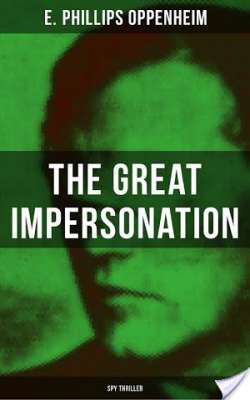
The Great Impersonation is a mystery novel by E. Phillips Oppenheim. German Leopold von Ragastein meets his doppelganger, Englishman Everard Dominey, in Africa, and plans to murder him and steal his identity in order to spy on English high society just prior to World War I. However, doubts of the returned Dominey's true identity begin to arise in this tale of romance, political intrigue, and a (literally) haunting past. E. Phillips Oppenheim, the Prince of Storytellers (1866-1946) was an internationally renowned author of mystery and espionage thrillers. His novels and short stories have all the elements of blood-racing adventure and intrigue and are precursors of modern-day spy fictions.
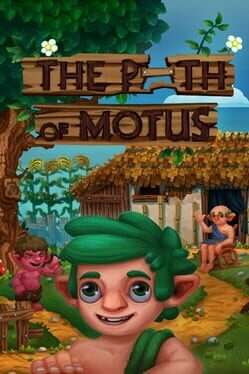
Will you let other people stop you from pursuing your dreams? The Path of Motus is a game where words hurt.... literally.

Charlotte Holmes, Lady Sherlock, returns in the Victorian-set mystery series from the USA Today bestselling author of A Conspiracy in Belgravia and A Study in Scarlet Women, an NPR Best Book of 2016. Under the cover of "Sherlock Holmes, consulting detective," Charlotte Holmes puts her extraordinary powers of deduction to good use. Aided by the capable Mrs. Watson, Charlotte draws those in need to her and makes it her business to know what other people don't. Moriarty's shadow looms large. First, Charlotte's half brother disappears. Then, Lady Ingram, the estranged wife of Charlotte's close friend Lord Ingram, turns up dead on his estate. And all signs point to Lord Ingram as the murderer. With Scotland Yard closing in, Charlotte goes under disguise to seek out the truth. But uncovering the truth could mean getting too close to Lord Ingram--and a number of malevolent forces...

The Big Sleep is Raymond Chandler's most famous and popular novel of all Los Angeles PI Philip Marlowe is working for the Sternwood family. Old man Sternwood, crippled and wheelchair-bound, is being given the squeeze by a blackmailer and he wants Marlowe to make the problem go away. But with Sternwood's two wild, devil-may-care daughters prowling LA's seedy backstreets, Marlowe's got his work cut out - and that's before he stumbles over the first corpse . . . 'Anything Chandler writes about grips the mind from the first sentence' Daily Telegraph 'One of the greatest crime writers, who set standards others still try to attain' Sunday Times 'Chandler is an original stylist, creator of a character as immortal as Sherlock Holmes' Anthony Burgess Best-known as the creator of the original private eye, Philip Marlowe, Raymond Chandler was born in Chicago in 1888 and died in 1959. Many of his books have been adapted for the screen, and he is widely regarded as one of the very greatest writers of detective fiction. His books include The Big Sleep, The Little Sister, Farewell, My Lovely, The Long Good-bye, The Lady in the Lake, Playback, Killer in the Rain, The High Window and Trouble is My Business.

This book opens the audience’s eyes to the extraordinary scientific secrets hiding in everyday objects. Helping readers increase chemistry knowledge in a fun and entertaining way, the book is perfect as a supplementary textbook or gift to curious professionals and novices. • Appeals to a modern audience of science lovers by discussing multiple examples of chemistry in everyday life • Addresses compounds that affect everyone in one way or another: poisons, pharmaceuticals, foods, and illicit drugs; thereby evoking a powerful emotional response which increases interest in the topic at hand • Focuses on edgy types of stories that chemists generally tend to avoid so as not to paint chemistry in a bad light; however, these are the stories that people find interesting • Provides detailed and sophisticated stories that increase the reader’s fundamental scientific knowledge • Discusses complex topics in an engaging and accessible manner, providing the “how” and “why” that takes readers deeper into the stories
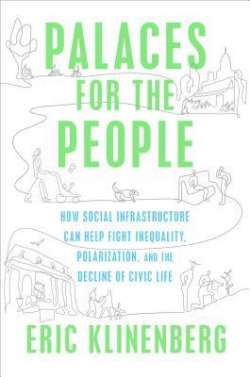
“A comprehensive, entertaining, and compelling argument for how rebuilding social infrastructure can help heal divisions in our society and move us forward.”—Jon Stewart NAMED ONE OF THE BEST BOOKS OF THE YEAR BY NPR • “Engaging.”—Mayor Pete Buttigieg, The New York Times Book Review (Editors’ Choice) We are living in a time of deep divisions. Americans are sorting themselves along racial, religious, and cultural lines, leading to a level of polarization that the country hasn’t seen since the Civil War. Pundits and politicians are calling for us to come together and find common purpose. But how, exactly, can this be done? In Palaces for the People, Eric Klinenberg suggests a way forward. He believes that the future of democratic societies rests not simply on shared values but on shared spaces: the libraries, childcare centers, churches, and parks where crucial connections are formed. Interweaving his own research with examples from around the globe, Klinenberg shows how “social infrastructure” is helping to solve some of our most pressing societal challenges. Richly reported and ultimately uplifting, Palaces for the People offers a blueprint for bridging our seemingly unbridgeable divides. LONGLISTED FOR THE ANDREW CARNEGIE MEDAL FOR EXCELLENCE IN NONFICTION “Just brilliant!”—Roman Mars, 99% Invisible “The aim of this sweeping work is to popularize the notion of ‘social infrastructure'—the ‘physical places and organizations that shape the way people interact'. . . . Here, drawing on research in urban planning, behavioral economics, and environmental psychology, as well as on his own fieldwork from around the world, [Eric Klinenberg] posits that a community’s resilience correlates strongly with the robustness of its social infrastructure. The numerous case studies add up to a plea for more investment in the spaces and institutions (parks, libraries, childcare centers) that foster mutual support in civic life.”—The New Yorker “Palaces for the People—the title is taken from the Scottish-American industrialist and philanthropist Andrew Carnegie’s description of the hundreds of libraries he funded—is essentially a calm, lucid exposition of a centuries-old idea, which is really a furious call to action.”—New Statesman “Clear-eyed . . . fascinating.”—Psychology Today
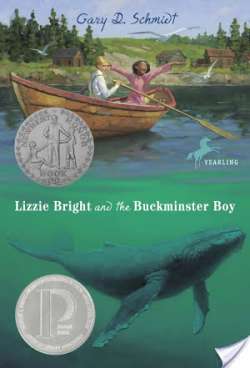
Turner Buckminster hates his new home of Phippsburg, Maine, but things improve when he meets Lizzie Bright Griffin, a girl from a poor island community founded by slaves that the town fathers want to change into a tourist spot.
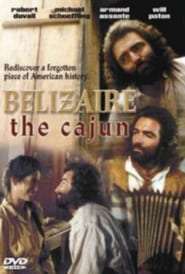
In 19th-century Louisiana's Cajun country, Belizaire (Armand Assante) is the informal spokesman for his citizens, who don't see eye to eye with local racists who wish to eradicate all Cajuns. Complicating matters is the fact that Belizaire's former flame (Gail Youngs) is now married to his biggest rival (Will Patton), an affluent landowner's son. Before he knows it, Belizaire is caught up in a web of murder, lies and prejudice.
